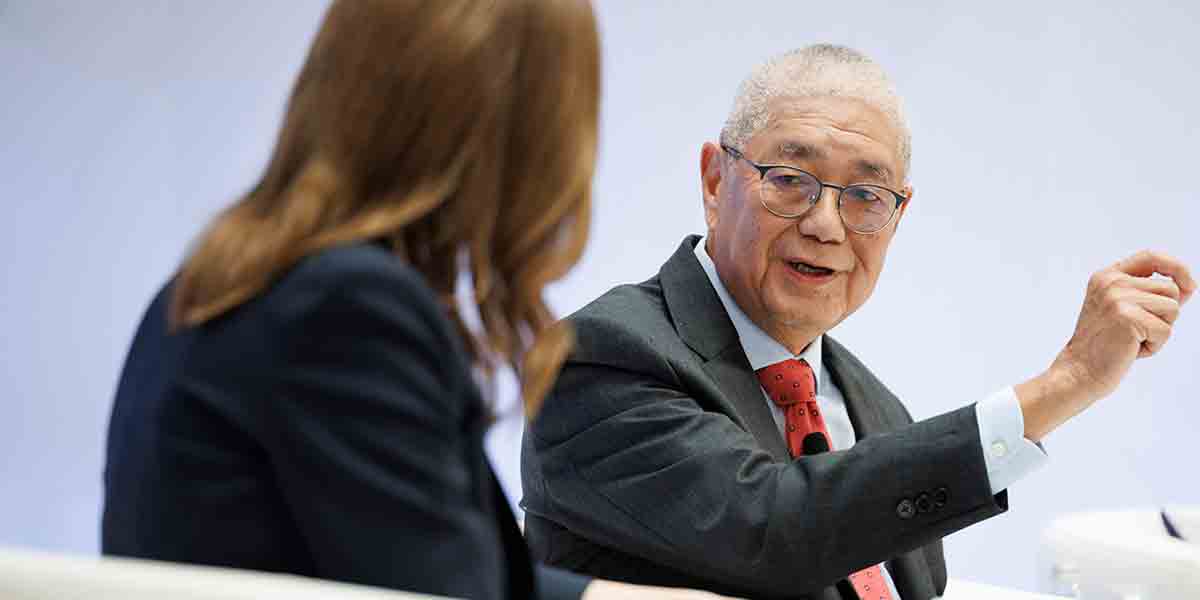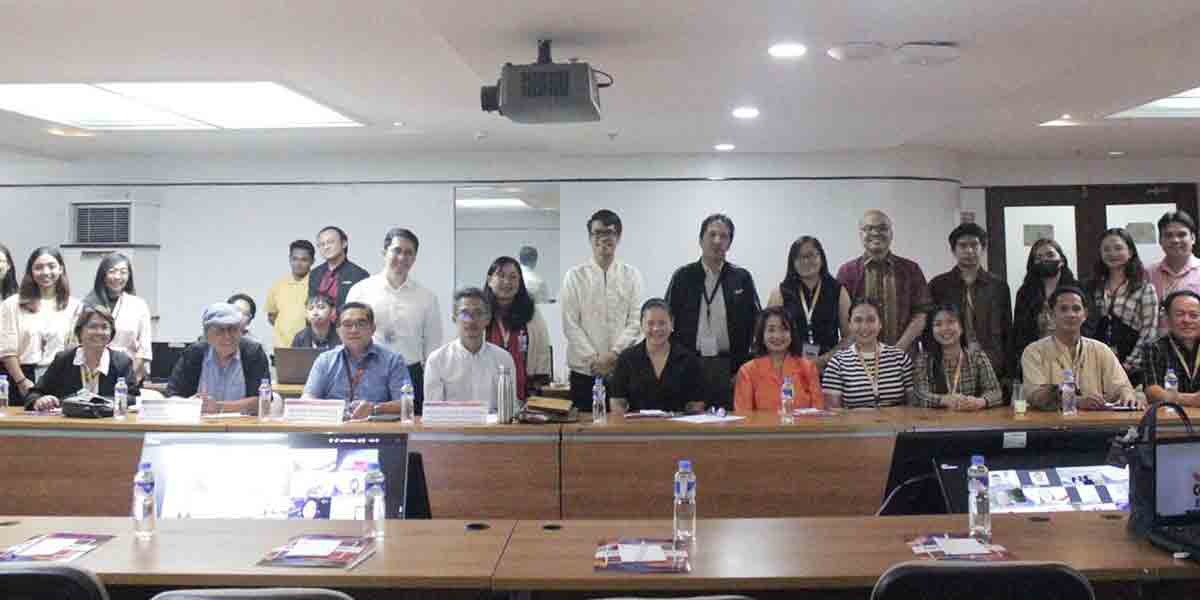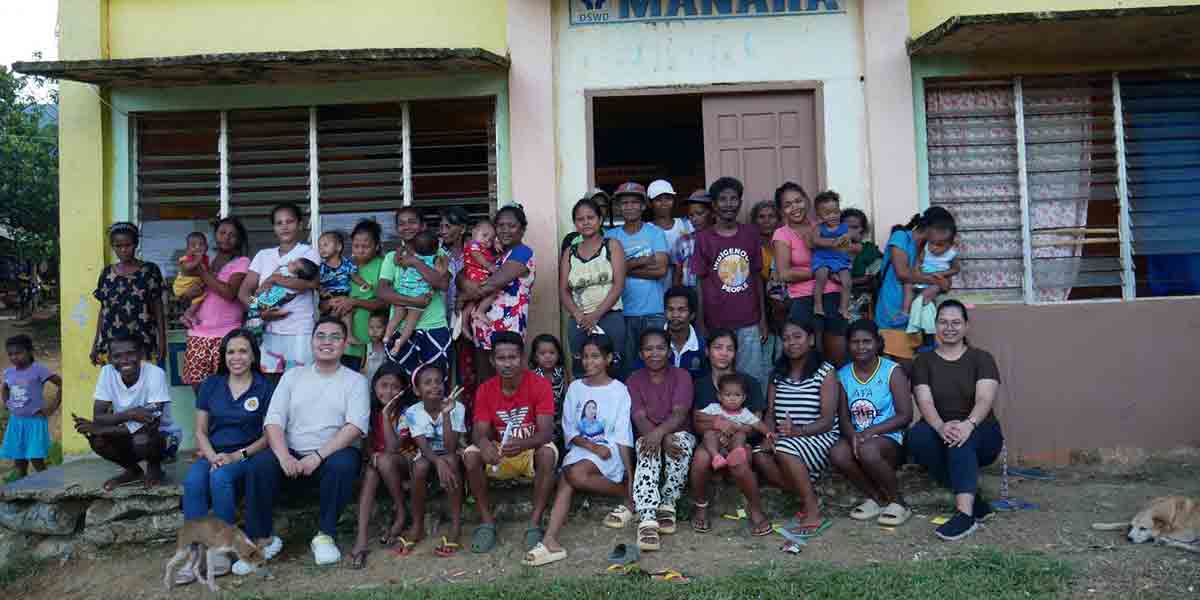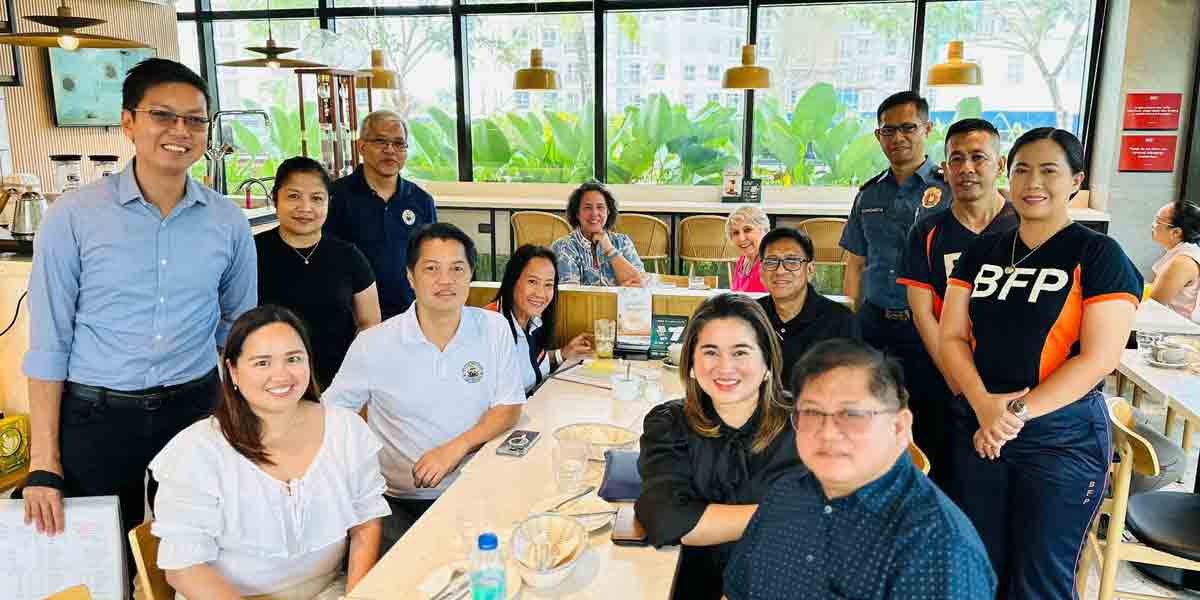
With the number of coronavirus cases not slowing down, the property industry copes with the new normal: real estate professionals working from home, providing value to clients with the aid of technology. Most of the focus now is geared towards understanding and adapting to changing customer preferences during this pandemic.
In the third episode of Lamudi’s developer webinar series, “Housing in Lockdown: Buying Property During the Pandemic,” experts share their insights on how they’ve been adjusting to this new normal.
Deborah Ong, Head of Corporate Accounts at Lamudi, is back with executives from the biggest property developers in the country, namely David Rafael, Chief Executive Officer of AboitizLand, Inc.; Tomas Lorenzo, Chief Executive Officer of Torre Lorenzo Development Corporation; and Jose Soberano III, Chief Executive Officer of Cebu Landmasters, Inc. Here are some of the highlights of the discussion:
Sustaining Operations Amidst the Community Quarantine
Soberano shared that while some of their teams are working remotely, a few have been able to carry out normal operations, such as construction activities, despite the lockdown in Visayas-Mindanao regions.
“We’re lucky to have that. But we still make sure that we adhere to the best standards in terms of prevention, addressing that these people are not getting infected. On the site, we have not only their safety officers, but even nurses. They’re staying in bunk houses, close to the site, which are very secure,” he noted.
He added that it’s important for property developers to not lose sight of the reality that the pandemic will be over eventually. He advised, “This is not going to last forever, we know that. When things start to normalize, we have to gradually make sure we’re ready for addressing that market that will come in.”
Lorenzo likewise has the majority of their team on work-from-home mode, noting that they’ve been striving to do a lot now, in preparation for the lifting of the lockdown. For operations still being continued, such as those related to power and water, they’ve been following the government’s requirements to ensure that their teams are safe.
He shared that when the pandemic hit, he had a moment of reflection, looking back at the years he spent in the real estate industry and noting the times that crises struck and how they coped. “When I first got into the real estate business, that was in 1995. Our first big project was in 1997 and right after I started that project, the Asian financial crisis hit and I thought that was the end of the world. But we stuck it out, we continued to grow the business.”
“After that, we were hit by the 2003 SARS outbreak, the 2009 world financial meltdown. Up to recently, even in our Davao projects, we were hit by earthquakes and we weathered that. Then last January, we were hit by the volcanic eruption of Taal in our projects in Batangas. We weathered all of these and we continued on.
“So, COVID, for me, is just another challenge we’re given. Sometimes I think it’s a pause. It’s a pause button given to us so we can really take stock and catch up on all the work that has been pending, especially in terms of designing,” Lorenzo said.
He reiterated the nature of real estate business, that it’s a long-term game. Plans should be relevant to the kind of world people will be living in five to 15 years from now. That’s why for Lorenzo, planning never stops.
Being Creative about Engaging Clients
For Rafael, creating value in services means being creative and resourceful, which meant maximizing technologies and tools available. “The basic process [of property-buying] has remained the same. It’s the medium where that process is implemented that is different,” he said.
Pre-pandemic, seekers get information from flyers or billboards. Now, they learn online. Pre-pandemic, open houses are the norm. Now, virtual tour is the new normal. Pre-pandemic, face-to-face meetings happen in restaurants or coffee shops. Now, it’s through video conferencing tools.
When the buyer is ready to pay, Rafael said that there are various platforms to make this happen. “We’ve got Acquire, where he can pay using a credit card. We’ve got the automatic debit facilities. Once that’s done, the reservation agreements, whatever documents required, can be done online. He can send in the reservation agreement and he can sign it through e-signature.”
Rafael’s sales figures are testament that it’s possible to thrive in the crisis. While of course, there has been a slump in numbers, they’ve been enjoying 50 to 60 percent of the volume of sales pre-pandemic nonetheless. For a crisis of this magnitude, it’s an admirable victory.
Lorenzo agrees with Rafael and mentioned that their company has been operating in online platforms as well to cater to the needs of clients. Expanding on customers’ needs, he pointed out that from experience, there are four key things people look for when buying a property, regardless of the times, whether there’s a crisis or none: location, track record, quality, and value for money. Like Rafael, Lorenzo said it’s only the medium that differs.
He explained, “In terms of location, even in a quarantine situation, people virtually go places. They look at Google Maps, Google Earth. Even the Lamudi site, it will show where the property is. Secondly, track record. They look for a developer who has finished projects, who has already a track record of finishing that kind of project […]
“Next is value for money. They look online and compare amenities, size of units, finishes. They can do all that online. They can see the value of what they’re going to get. Lastly, quality. Quality is not just what’s turned over but rather the entire package, how is the building maintained, how is the building management run. These things, people look for. They want to make sure their investment lasts very long.”
On the developer’s end, Lorenzo said that the ultimate goal is to be the ‘top of mind’ of the market when considering these mentioned factors.
Purchasing Property in the Time of COVID
Asked if now is the right time to buy property, Soberano said that the need for a home has never been so pronounced until this crisis came about. He said, “There’s no better time for [people to realize] the need to have a home or a condo unit [than now].” Pointing out that several people are now staying in their family homes, perhaps cramped with siblings and other relatives, Soberano said that many may be considering moving out and finding their own place.
This is where the track record of property developers comes in, he noted. He advised seekers to look into the performance of the developer they’re doing business with before proceeding with the purchase.
Urging buyers to ask questions, Soberano said that this is the right time to inquire how the developer and the property management maintains the safety in premises and engages with the community.
Lorenzo agrees with Soberano about property seeker’s motives in buying a place of their own. He also noted the fact that younger adults leave early on: “The demographics have changed. Young people now leave their homes [during] college. They have to be near where they study or work. They don’t wait anymore for marriage before they leave. They already move out.”
He also expanded what Soberano said about the property management’s role in maintaining the quality of the buildings and ensuring the safety of dwellers, especially during a crisis. “Property management, even now during COVID, is very important. We always post in our social media pages about how we clean, how we sanitize our hallways, our common areas, how we take care of people who are isolating,” he said.
Helping Property Seekers
The highest level of customer service is needed during this time, one that exercises empathy. People today are anxious and conscious about finances. Rafael recognized the fact that many are holding on to their money, given the economic uncertainty the pandemic has brought. Some have been laid off, while others are struggling in their own businesses. When money moves out, it’s only spent on basic goods. Since property purchases are a long-term commitment, it’s understandable that there’s some hesitation on the part of buyers, Rafael noted.
“All the more, in this situation, there has to be a very keen sense of customer need, the customer situation. The customer right now is facing this challenge in terms of their income. One way the developer can address the situation is perhaps being very flexible in the payment terms they will offer.
“Whereas before, you got your standard 10 percent down payment, monthly amortizations, 24 months take out, now, you need to come up with more creative payment schemes to accommodate the situation of buyers that are in this situation where there is that uncertainty,” he said.
What Aboitiz does, according to Rafael, is give property buyers incentives, such as discounts, to help them in their financial need. They extend this incentive scheme to sellers as well, adjusting their commission fees to honor their being “frontliners” in the business.
Summing up the major concern in the real estate industry, he said, “The challenge is not just in the new mode of selling. The challenge [is more on the fact that] the people we’re selling to have [fewer] resources. In fact, that’s the bigger challenge. You’re talking now to people who have [fewer] resources, and not only [fewer] resources, but uncertainty of that resource.”
Meanwhile, Soberano’s team has been offering aid to buyers, extending payments for those who acquired pre-selling units. They’re also striving to reassure clients by telling them that the prices are not going to change. He mentioned that developers today need to take time to review price points. “In the next few months, prices of construction materials will soften because a lot of the inventory was not acquired. There are possible adjustments, a review of the pricing.”
Recognizing as well the worries of the market, Soberano reminds buyers that the crisis is temporary. He estimates that some businesses may outsource in the future, which would create job opportunities. Developers and brokers should focus on these and other ways of reassuring the market.
In the case of Torre Lorenzo, it’s a little different, as they’re catering to a premium end of the market. The common concern of their clients is focused on the time of delivery of the units more than flexible payment schemes. To this, they provide relevant information to keep clients in the loop.
Lorenzo likewise shared that they’re gearing up for the market who will be keen on renting. He mentioned, “People who can’t afford to buy are going to shift to leasing. In Torre Lorenzo, we have quite a substantial portion of our projects for lease.”
Banding Together as Developers
Asked how property developers can unite to address seekers’ needs, Soberano advised, “Don’t wait for orders to come in before you build. You will be in a better position to address the market if you have a lot of RFO units.” Reiterating buyers’ considerations that Lorenzo shared, he said that developers should make sure that all of those elements are ticked to bring back the confidence of the market.
Emphasizing the role of property management, he likewise advised developers to consider the possibility of strengthening health-related efforts in communities. He floated some ideas, “Is it the right time to put in nurses in your villages or condos? Can you ‘culturize’ being health or sanitary-conscious?”
Developers must step up to the challenge of being proactive in creating healthy communities, Soberano said.
The shift in buyers’ preferences, meanwhile, is what Rafael thinks developers should focus on. He said that before, end-users’ default buying decisions consist of getting a property near where they work, which means limited space in a high-density neighborhood. With this pandemic and the possibility of something like it happening again in the future, there’s a possibility that people are reconsidering their default preferences, looking on to the possibility of getting a property that may be outside the central business district, but provides more open space, located in a lower-density neighborhood, if that means better living conditions during a crisis.
Rafael extends this shift of preferences to investors. “Even the investors might start reconsidering. Instead, they’ll say, ‘I want to invest in real estate, maybe it’s safer to just buy a lot, in a location that will appreciate in the future, because of all the infrastructures, developments, and reputation of developer. Maybe I’m better off investing in a piece of land, which will appreciate, which I can sell five, 10 years from now.’”
While acknowledging Rafael’s insights, Lorenzo also said that there will still be a market who will be keen on being near key establishments, especially offices. He noted the fact that people find it inconvenient to travel across barangays now, as there are required quarantine passes. For professionals who need to report to the office despite the lockdown, living near their place of work is a huge benefit.
He further explained, “It’s still really what people’s aspirations are and what their needs are at that moment […] The needs of a 24-year-old single person, a 39-year-old married person, and a 67-year-old retiree are different. Developers should try to fill those needs.”
Soberano agrees with Lorenzo in that condominiums will still be in-demand after the pandemic. “I guess there will be more leaning towards a mixed-use type of development, where you can interface the work-play dimensions,” he said. There’s a possibility that seekers would look for communities that provide easy access to commercial and recreational facilities, such as offices, restaurants, supermarkets, gyms, and even chapels. This, Soberano said, should be incorporated in a developer’s future build and design plans.
Projecting Recovery
Asked what their forecasts are in terms of recovery from COVID, Soberano believes that it’s going to be a U-shaped recuperation, but he believes that the plateau will not be very long. He attributes it to the eagerness of real estate professionals: “Property developers, together with brokers and agents and sales teams, are already itching to go back. They’d like to spike it up immediately, that the U would be more of a V.”
Soberano, however, recognized that there would be real challenges in the hospitality sector. The business process outsourcing, meanwhile, will have a shorter plateau, he projected.
Part of the recovery after COVID, he said, should be providing socialized housing. Referring to the escalation of the number of cases, he noted, “Things could have been better if we had homes for people, even those who couldn’t afford.”
Rafael likewise projects a U recovery, noting however that they’re bullish on their industrial segment, as global manufacturing firms understand that to weather a pandemic like COVID, it’s crucial to disperse operations in different parts of the world to sustain supply chain operations. In terms of the residential segment, he said that interest for property won’t decline. He shared, “Given the housing backlog here in the Philippines, the fairly young population, the demand for housing will always be there. It’s not going to go away.”
Meanwhile, in the commercial segment, Rafael considers focusing on BPO spaces, since outsourcing, as Soberano said, will sustain demand. He had the same insights on offshore gaming firms, mentioning, “I’m confident that we’ll see another wave of these Chinese companies putting up POGO operations. That’s not going to stop.”
Lorenzo, meanwhile, hopes for a U, but prepares for a W, as there’s uncertainty on when the COVID cure will be available. He readies himself by understanding market needs to filter through the projects he would venture on. Even prior to the pandemic, this has been his best practice.
“I look at the market. I talk to the market. I sometimes pretend to be a sales agent, and I sit and talk to buyers from all over the world. I listen to their concerns and issues. I really get a feel of what people want, and what their dreams and aspirations are. That is where I get the impetus to come up with projects,” he said.
He added, “With COVID, there’s going to be a need to really tweak the way things are built. Even existing buildings will have to have their [sanitation] area. It will almost be like an agricultural enterprise, where there’s a foot bath and people will have to sanitize and exercise distance.”
The coronavirus pandemic has deeply affected the real estate industry, but like how the sector survived past crises, it will definitely ride out the current one. What’s important is to adapt to the changing market preferences and to adopt new, creative ways to provide valuable products and services.




















